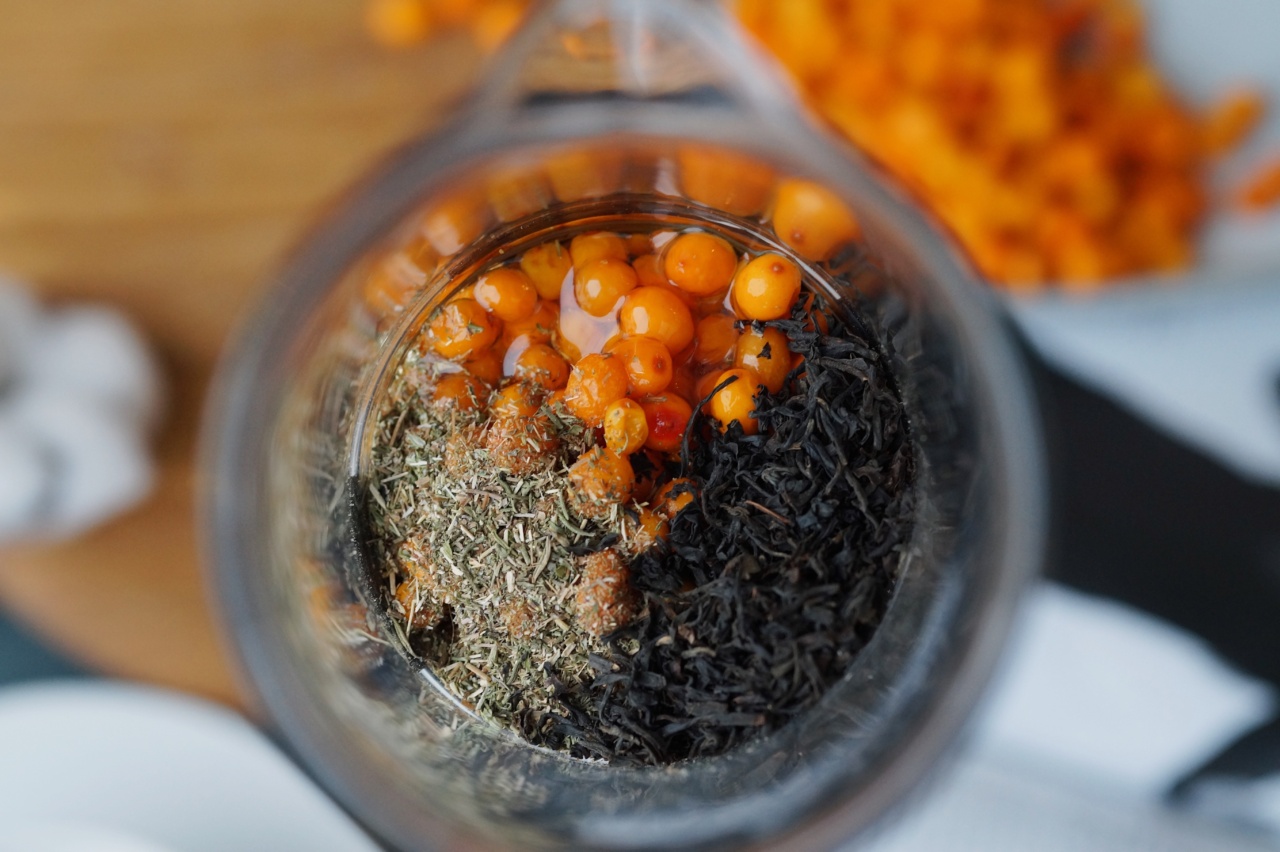Health is wealth is a common adage that emphasizes the fact that our well-being is the most important aspect of our lives. To achieve good health, it is important to pay attention to the food that we eat.
Unfortunately, there are harmful ingredients that are present in some of the most common food products we consume. Manna, for instance, is a popular food product that many people rely on for their daily sustenance. However, there are harmful ingredients to avoid in Manna that can pose significant health risks.
In this article, we will discuss 30 such ingredients to help people make informed decisions about their food choices.
1. High Fructose Corn Syrup
High Fructose Corn Syrup (HFCS) is a sweetener that is commonly used in processed foods to enhance flavor. However, it has been linked to obesity, diabetes, and liver disease.
Studies have also shown that HFCS can lead to an increased risk of heart disease and cancer.
2. Aspartame
Aspartame is a sugar substitute that is commonly used in low-calorie drinks and foods. Despite being approved by the FDA, studies have linked aspartame to a range of health problems, including headaches, dizziness, and depression.
In some cases, it has even been linked to cancer.
3. Sodium Nitrate
Sodium nitrate is a preservative that is commonly used in processed meats such as bacon, ham, and hot dogs. It has been linked to cancer, especially when consumed in large amounts over an extended period of time.
4. MSG (Monosodium Glutamate)
MSG is a flavor enhancer that is commonly used in Chinese food, canned soups, and processed meats. It has been linked to various health problems, including headaches, nausea, and weakness.
Some studies show that MSG can even damage the brain and nervous system.
5. Trans Fats
Trans fats are a type of unsaturated fat that is commonly found in processed foods. They are known to increase the risk of heart disease, diabetes, and obesity.
In 2015, the FDA removed trans fats from the Generally Recognized as Safe (GRAS) list and mandated their removal from all food products by June 18, 2018.
6. Artificial Colors
Artificial colors are commonly used in processed foods to enhance their appearance. However, studies have linked artificial colors to various health problems, including hyperactivity in children and an increased risk of cancer.
7. BHA and BHT
BHA (butylated hydroxyanisole) and BHT (butylated hydroxytoluene) are preservatives that are commonly used in processed foods to prevent oxidation.
Both BHA and BHT have been linked to cancer, especially when consumed in large amounts over an extended period of time.
8. Potassium Bromate
Potassium bromate is a flour improver that is commonly used in bread and other baked goods. However, studies have shown that it can cause cancer in animals and has the potential to be carcinogenic in humans.
9. Sodium Benzoate
Sodium benzoate is a preservative that is commonly used in soft drinks, fruit juices, and other acidic products. It has been linked to hyperactivity in children and has been shown to damage DNA in cells, potentially leading to cancer.
10. Acesulfame Potassium
Acesulfame potassium is a sugar substitute that is commonly used in low-calorie foods and drinks. Some studies have linked it to an increased risk of cancer, although the evidence is not conclusive.
11. Carrageenan
Carrageenan is a thickening agent that is commonly used in dairy products, salad dressings, and other processed foods. It has been linked to digestive problems and has been shown to cause inflammation in the gut.
12. Caramel Coloring
Caramel coloring is a coloring agent that is commonly used in soft drinks, processed meats, and other food products. It has been linked to cancer in animals and may be carcinogenic in humans.
13. Calcium Propionate
Calcium propionate is a preservative that is commonly used in baked goods. It has been linked to migraines and has been shown to damage the stomach lining in animals.
14. Sodium Sulfite
Sodium sulfite is a preservative that is commonly used in dried fruits, shellfish, and wine. It has been linked to asthma attacks and has been shown to cause allergic reactions in some people.
15. Olestra
Olestra is a fat substitute that is commonly used in potato chips and other snack foods. It has been linked to digestive problems and has been shown to inhibit the absorption of important vitamins and minerals.
16. Sodium Nitrite
Sodium nitrite is a preservative that is commonly used in processed meats. It has been linked to cancer and may cause the formation of carcinogenic compounds in the body.
17. Propyl Gallate
Propyl gallate is a preservative that is commonly used in processed meats, cereal, and other food products. It has been linked to cancer and has been shown to cause damage to the liver and kidneys in animals.
18. Polysorbate 60
Polysorbate 60 is an emulsifier that is commonly used in baked goods, ice cream, and other processed foods. It has been linked to inflammatory bowel disease and other digestive problems.
19. Sodium Propionate
Sodium propionate is a preservative that is commonly used in baked goods, cheese, and other food products. It has been linked to migraines and may cause behavioral problems in children.
20. Titanium Dioxide
Titanium dioxide is a whitening agent that is commonly used in processed foods, toothpaste, and sunscreen. It has been linked to cancer and has been shown to cause inflammation in the gut.
21. Butylated Hydroxyanisole (BHA)
Butylated Hydroxyanisole (BHA) is an antioxidant that is commonly used in processed foods. It has been linked to cancer and may cause damage to the liver and kidneys in animals.
22. Butylated Hydroxytoluene (BHT)
Butylated Hydroxytoluene (BHT) is an antioxidant that is commonly used in processed foods. It has been linked to cancer and has been shown to cause damage to the liver and kidneys in animals.
23. Nitrates and Nitrites
Nitrates and nitrites are preservatives that are commonly used in processed meats. They have been linked to cancer, especially when consumed in large amounts over an extended period of time.
24. Potassium Bromide
Potassium Bromide is commonly used in flour and food to make it softer, it has been linked to several illness such as seizures and IBS.
25. Sodium Phosphate
Sodium Phosphate is commonly used as a food additive to enhance flavor, it might lead to elevated blood pressure, kidney damage and increased risk to cardiovascular disease among other things.
26. Xanthan Gum
Xanthan Gum is commonly used as a thickener and stabilizer. Avoidance of Xanthan Gum would allow you to avoid associated allergens such as corn or soy.
27. Artificial Sweeteners (Saccharin, Acesulfame, Aspartame)
Artificial sweeteners have been linked to several health problems including obesity, type 2 diabetes, metabolic syndrome and cardiovascular disease and gastrointestinal problems.
28. Food dyes (Yellow 5 and 6, Red 40 and Blue 1 and 2)
Artificial Colors have been linked to several health problems which include hyperactivity in children and an increased risk of cancer.
29. Partially Hydrogenated Oils (PHOs)
Partially hydrogenated oil is an artificial trans fat that is commonly used in processed foods to extend shelf life and enhance flavor. It has been linked to heart disease, stroke, and diabetes.
30. Artificial Flavors
Artificial flavors are chemicals that could disrupt the hormonal balance and might cause cancer.
Conclusion
It is important to be aware of the harmful ingredients that are commonly used in food products to make informed decisions when it comes to our health.
Be sure to read the labels of food products and avoid those that contain any of the ingredients listed above. Doing so can help to promote good health and reduce the risk of various health problems.




























